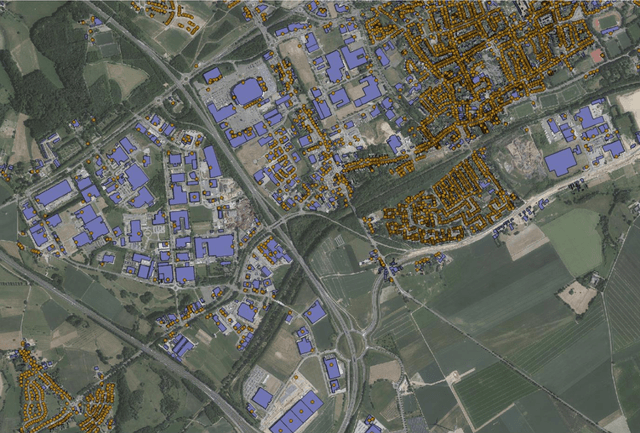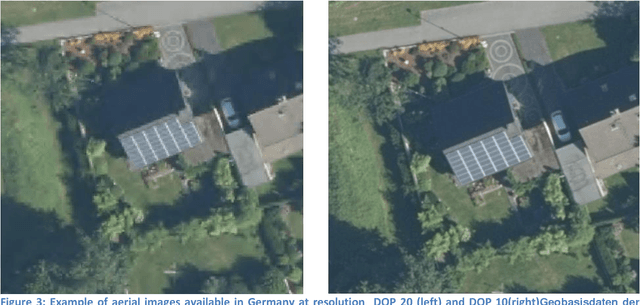Monitoring Spatial Sustainable Development: semi-automated analysis of Satellite and Aerial Images for Energy Transition and Sustainability Indicators
Paper and Code
Sep 12, 2020



This report presents the results of the DeepSolaris project that was carried out under the ESS action 'Merging Geostatistics and Geospatial Information in Member States'. During the project several deep learning algorithms were evaluated to detect solar panels in remote sensing data. The aim of the project was to evaluate whether deep learning models could be developed, that worked across different member states in the European Union. Two remote sensing data sources were considered: aerial images on the one hand, and satellite images on the other. Two flavours of deep learning models were evaluated: classification models and object detection models. For the evaluation of the deep learning models we used a cross-site evaluation approach: the deep learning models where trained in one geographical area and then evaluated on a different geographical area, previously unseen by the algorithm. The cross-site evaluation was furthermore carried out twice: deep learning models trained on he Netherlands were evaluated on Germany and vice versa. While the deep learning models were able to detect solar panels successfully, false detection remained a problem. Moreover, model performance decreased dramatically when evaluated in a cross-border fashion. Hence, training a model that performs reliably across different countries in the European Union is a challenging task. That being said, the models detected quite a share of solar panels not present in current solar panel registers and therefore can already be used as-is to help reduced manual labor in checking these registers.
 Add to Chrome
Add to Chrome Add to Firefox
Add to Firefox Add to Edge
Add to Edge